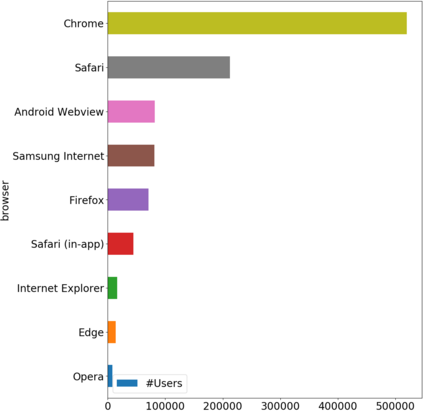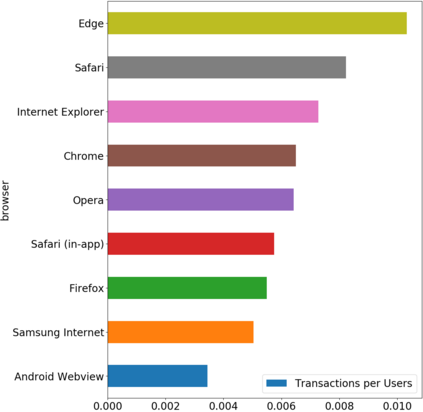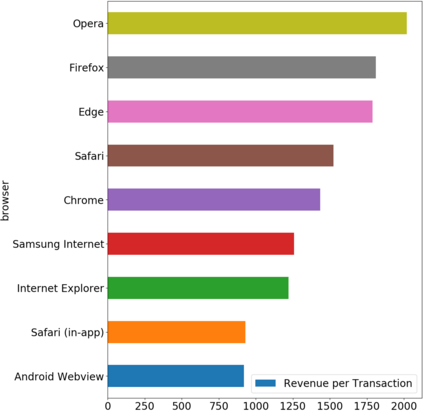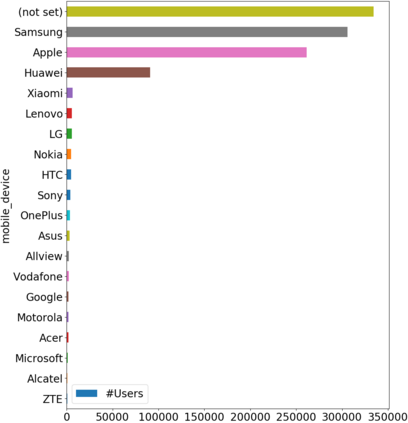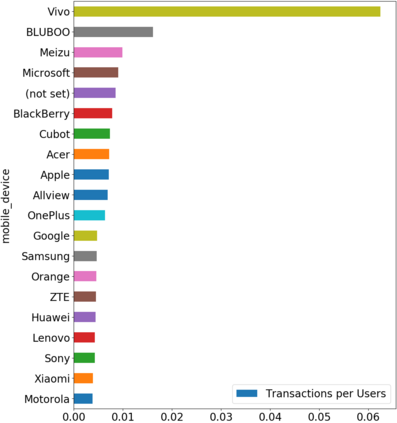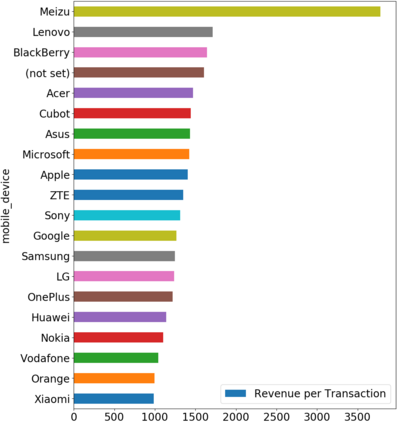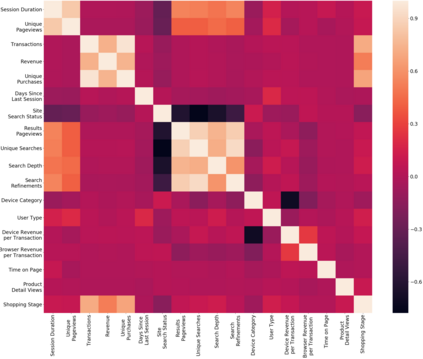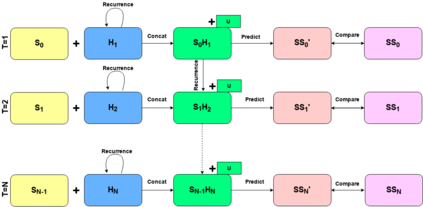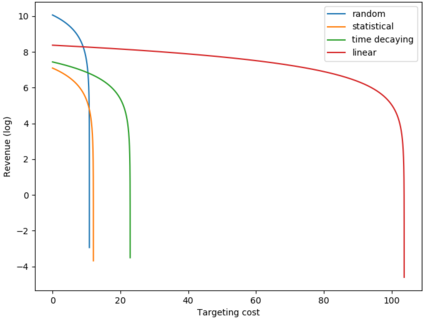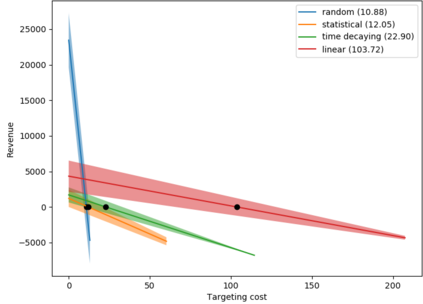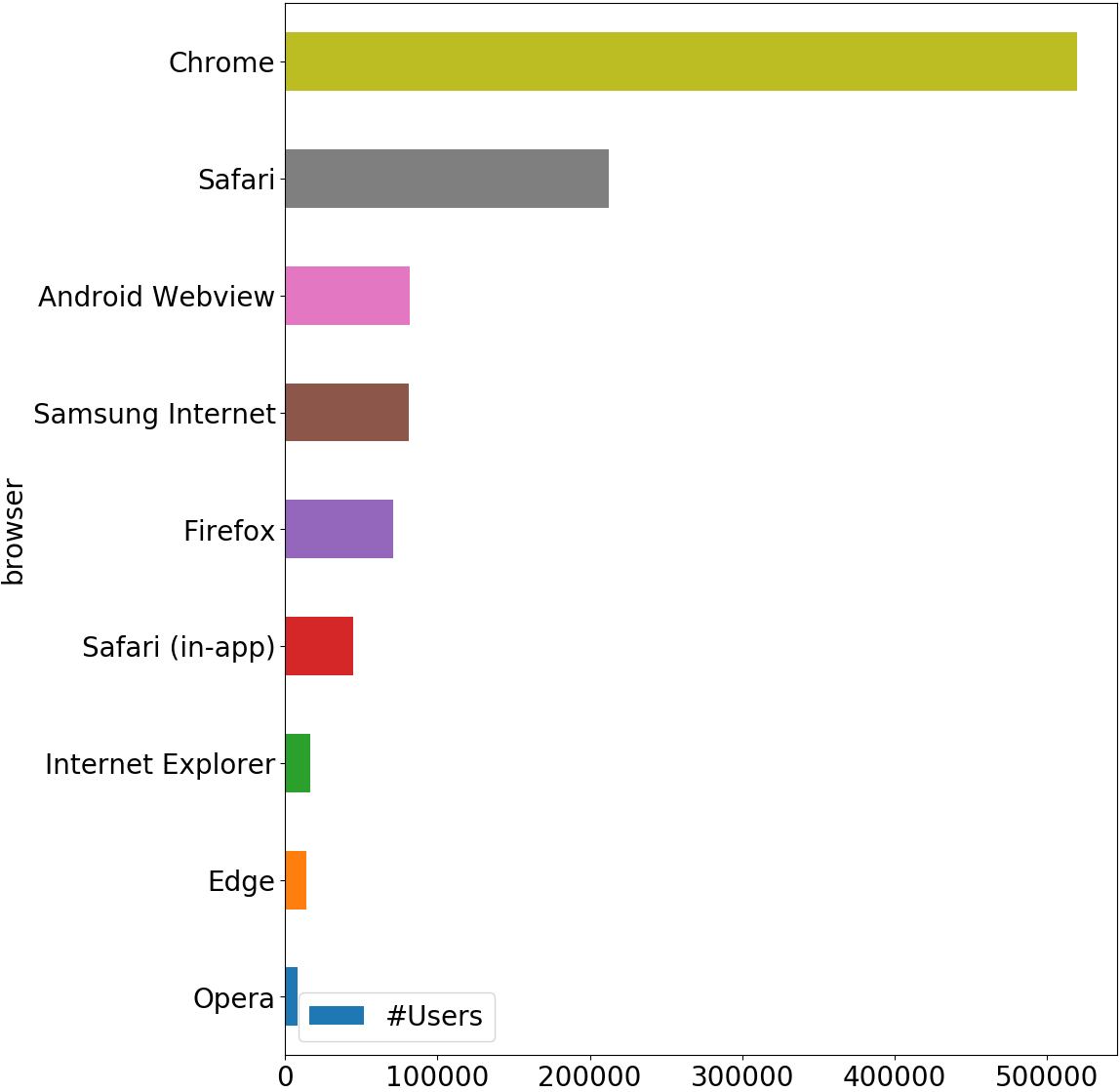E-commerce web applications are almost ubiquitous in our day to day life, however as useful as they are, most of them have little to no adaptation to user needs, which in turn can cause both lower conversion rates as well as unsatisfied customers. We propose a machine learning system which learns the user behaviour from multiple previous sessions and predicts useful metrics for the current session. In turn, these metrics can be used by the applications to customize and better target the customer, which can mean anything from offering better offers of specific products, targeted notifications or placing smart ads. The data used for the learning algorithm is extracted from Google Analytics Enhanced E-commerce, which is enabled by most e-commerce websites and thus the system can be used by any such merchant. In order to learn the user patterns, only its behaviour features were used, which don't include names, gender or any other personal information that could identify the user. The learning model that was used is a double recurrent neural network which learns both intra-session and inter-session features. The model predicts for each session a probability score for each of the defined target classes.
翻译:电子商务网络应用在我们的日常生活中几乎无处不在,不管多么有用,但大多数电子商务应用几乎无处不在,它们大多几乎无法适应用户的需要,而这反过来又会造成更低的转换率和不满意的客户。我们提议了一个机器学习系统,从前几次会议中学习用户的行为,并为本届会议预测有用的衡量尺度。反过来,这些衡量尺度可以被应用程序用于定制和更好地针对客户,这可能意味着提供更好的具体产品、有针对性的通知或发布智能广告。用于学习算法的数据从谷歌分析器强化电子商务中提取,而谷歌分析器强化电子商务的数据则由大多数电子商务网站提供,因此该系统可以被任何这样的商人使用。为了了解用户的模式,只使用了其行为特征,其中不包括名称、性别或能够识别用户的任何其他个人信息。使用的学习模式是一个双重的经常性神经网络,既可以学习内部特性,也可以在会间特性上学习。每次会议的模型预测每个定目标班的概率分数。

